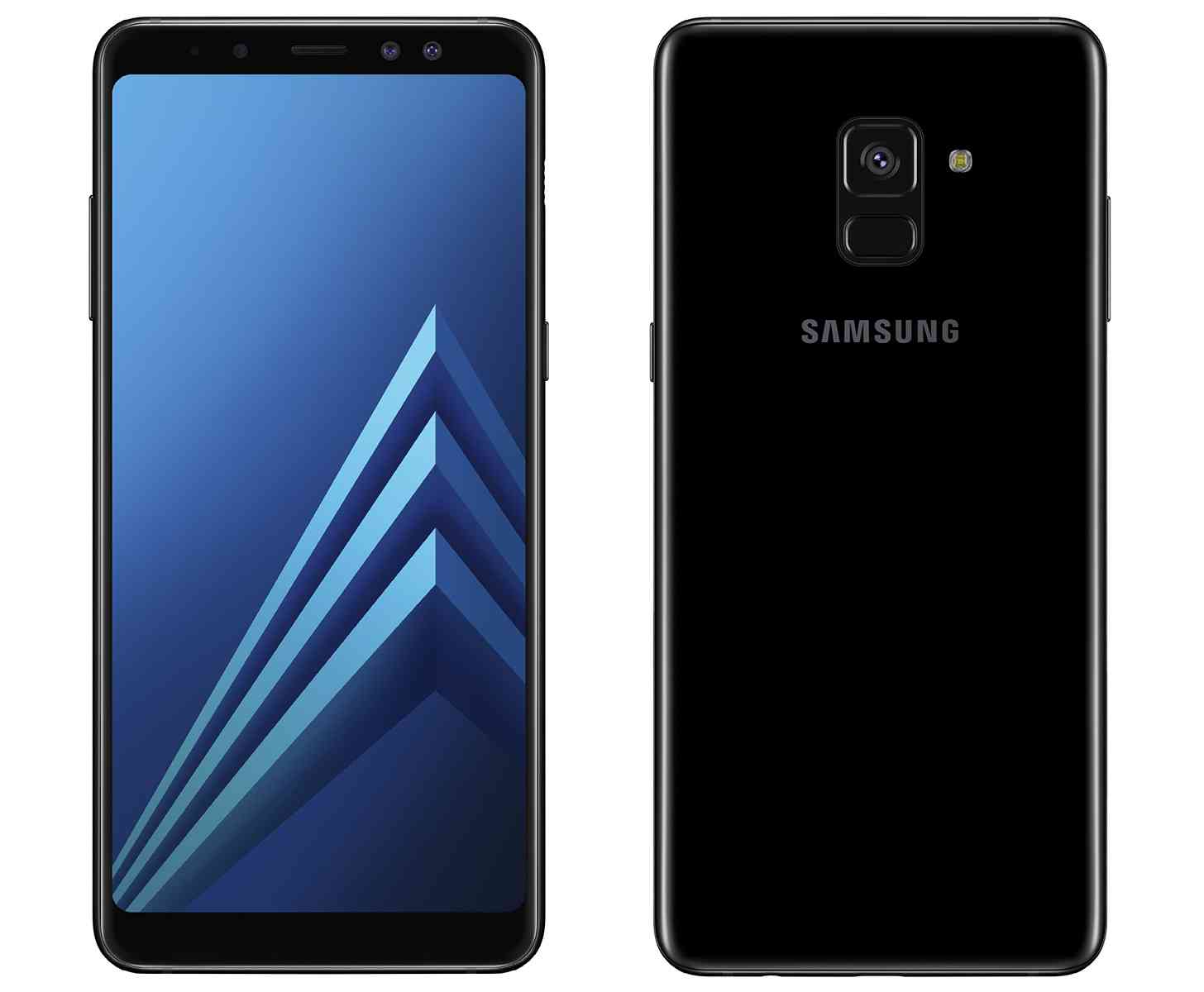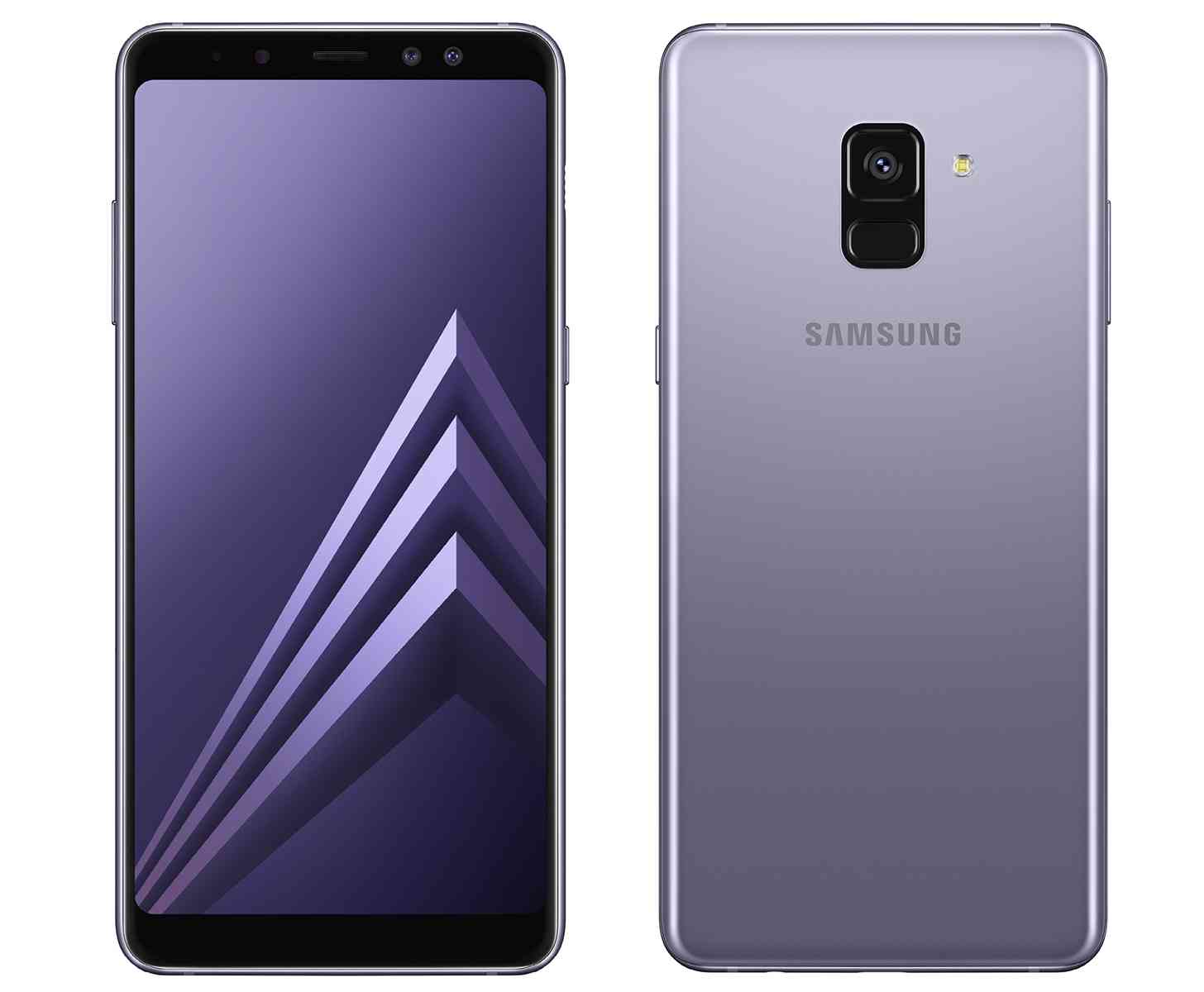
Samsung is bringing the Infinity Display design that it debuted on the Galaxy S8 to more devices.
The Samsung Galaxy A8 (2018) and Galaxy A8+ (2018) are now official. Like the Galaxy S8 and S8+, the new A8 and A8+ feature tall displays with 18.5:9 aspect ratios and slim bezels. The A8 features a 5.6-inch 2220x1080 Super AMOLED display while the A8+ has a 6-inch 2220x1080 screen. Both phones lack physical home buttons, giving them a clean, curved glass front.
Around back, each phone features more curved glass and a 16-megapixel rear camera with phase detection autofocus and an f/1.7 aperture. There's also a rear fingerprint reader, but thankfully Samsung has placed it below the rear camera on both phones rather than to its right like on the Galaxy S8 and S8+.

Both the A8 (2018) and A8+ (2018) also offer dual front-facing camera setups, with one 16-megapixel f/1.9 sensor and one 8-megapixel f/1.9 sensor. You can use these two cameras along with the Live Focus feature to give your selfies a blurry background which can be applied before or after you take the photo.
Inside the IP68 water and dust resistant bodies of the Galaxy A8 (2018) and A8+ (2018) is an octa-core processor, NFC, and a microSD card slot. The A8 offers 4GB of RAM, 32/64GB of storage, and a 3,000mAh battery, while the A8+ steps up to 4/6GB of RAM, 32/64GB of storage, and a 3,500mAh battery.
Rounding out the feature set for both phones is USB-C, Samsung Pay support, and Android 7.1.1 Nougat. Also of note is that these phones are the first in Samsung's Galaxy A series of devices to support Samsung Gear VR, bringing Gear VR capabilities to a new price range.

Samsung says that the Galaxy A8 (2018) and Galaxy A8+ (2018) will launch in early January 2018. Not other launch or pricing info is available.
The Galaxy A8 (2018) and Galaxy A8+ (2018) look like solid additions to Samsung's lineup. Smartphones with tall, all-screen designs are all the rage now, and these phones ought to help bring that kind of hardware to more people. They're also interesting because they have rear fingerprint readers below their displays, which could be a hint about where Samsung will place the fingerprint readers on the Galaxy S9 and S9+.